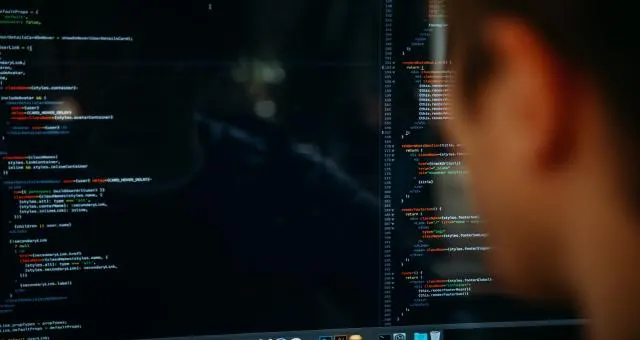AI vs Programmers: Will Artificial Intelligence Replace Human Coders?

GX Anshu | Jul 31, 2021
The question seems somewhat ironic if you think about it. Are the creations—intelligent systems—set to replace or displace their creators—programmers—in the future? It sounds like the plot of a sci-fi movie, doesn’t it? The more important question, though, is: Can it be true?
In a survey conducted by Evans Data Corp, 550 software developers were asked about the most worrying aspects in their career. “I and my development efforts are replaced by artificial intelligence,” said 29%.
How AI Can Write Code
there are so many software out there which can write code with himself they just want a simple instructions or need a pilet to hendal all of these. they use machine learning and artifical intelligence to to this.
Github Copilet is one the the software which can write code by itself and you need to just pilet the software and your code is generated with bug free and with no issue.
In 2015, Andrej Karpathy ran a project that used Recurrent Neural Networks to generate code. He took GitHub’s Linux repository (all the source files and headers files), combined it into one giant document (it was more than 400 MB of C code), and trained the RNN with this code.
Here’s what it produced:
/*
* If this error is set, we will need anything right after that BSD.
*/
static void action_new_function(struct s_stat_info *wb)
{
unsigned long flags;
int lel_idx_bit = e->edd, *sys & ~((unsigned long) *FIRST_COMPAT);
buf[0] = 0xFFFFFFFF & (bit << 4);
min(inc, slist->bytes);
printk(KERN_WARNING "Memory allocated %02x/%02x, "
"original MLL instead\n"),
min(min(multi_run - s->len, max) * num_data_in),
frame_pos, sz + first_seg);
div_u64_w(val, inb_p);
spin_unlock(&disk->queue_lock);
mutex_unlock(&s->sock->mutex);
mutex_unlock(&func->mutex);
return disassemble(info->pending_bh);
}
static void num_serial_settings(struct tty_struct *tty)
{
if (tty == tty)
disable_single_st_p(dev);
pci_disable_spool(port);
return 0;
}
static void do_command(struct seq_file *m, void *v)
{
int column = 32 << (cmd[2] & 0x80);
if (state)
cmd = (int)(int_state ^ (in_8(&ch->ch_flags) & Cmd) ? 2 : 1);
else
seq = 1;
for (i = 0; i < 16; i++) {
if (k & (1 << 1))
pipe = (in_use & UMXTHREAD_UNCCA) +
((count & 0x00000000fffffff8) & 0x000000f) << 8;
if (count == 0)
sub(pid, ppc_md.kexec_handle, 0x20000000);
pipe_set_bytes(i, 0);
}
/* Free our user pages pointer to place camera if all dash */
subsystem_info = &of_changes[PAGE_SIZE];
rek_controls(offset, idx, &soffset);
/* Now we want to deliberately put it to device */
control_check_polarity(&context, val, 0);
for (i = 0; i < COUNTER; i++)
seq_puts(s, "policy ");
}
So, will AI replace programmers?
Yes or No are both the answer of this question. The Hollywood fiction of AI supplanting humans hasn’t come true yet. We are far from 2001: A Space Odyssey-like scenarios of rogue AI turning against its human masters and killing off space crews.
That does not stop filmmakers from generously employing the theme of an AI rebellion in their works.
But can we be so sure that real-life AI can be controlled?
In 2016, Microsoft released a Twitter bot called Tay. It was designed to mimic the language patterns of a 19-year-old American girl, and to learn from interacting with human users of Twitter. After just 16 hours following its launch, Microsoft was forced to shut Tay down because the bot began to post offensive tweets.
conclusion
but i think the AI Programmer can able to replace software programmers or the developer who do’nt want to use there own logic in near future. so there is a no problem for the logic building prgramemrs like AI developers or something else. but there still a chance.
